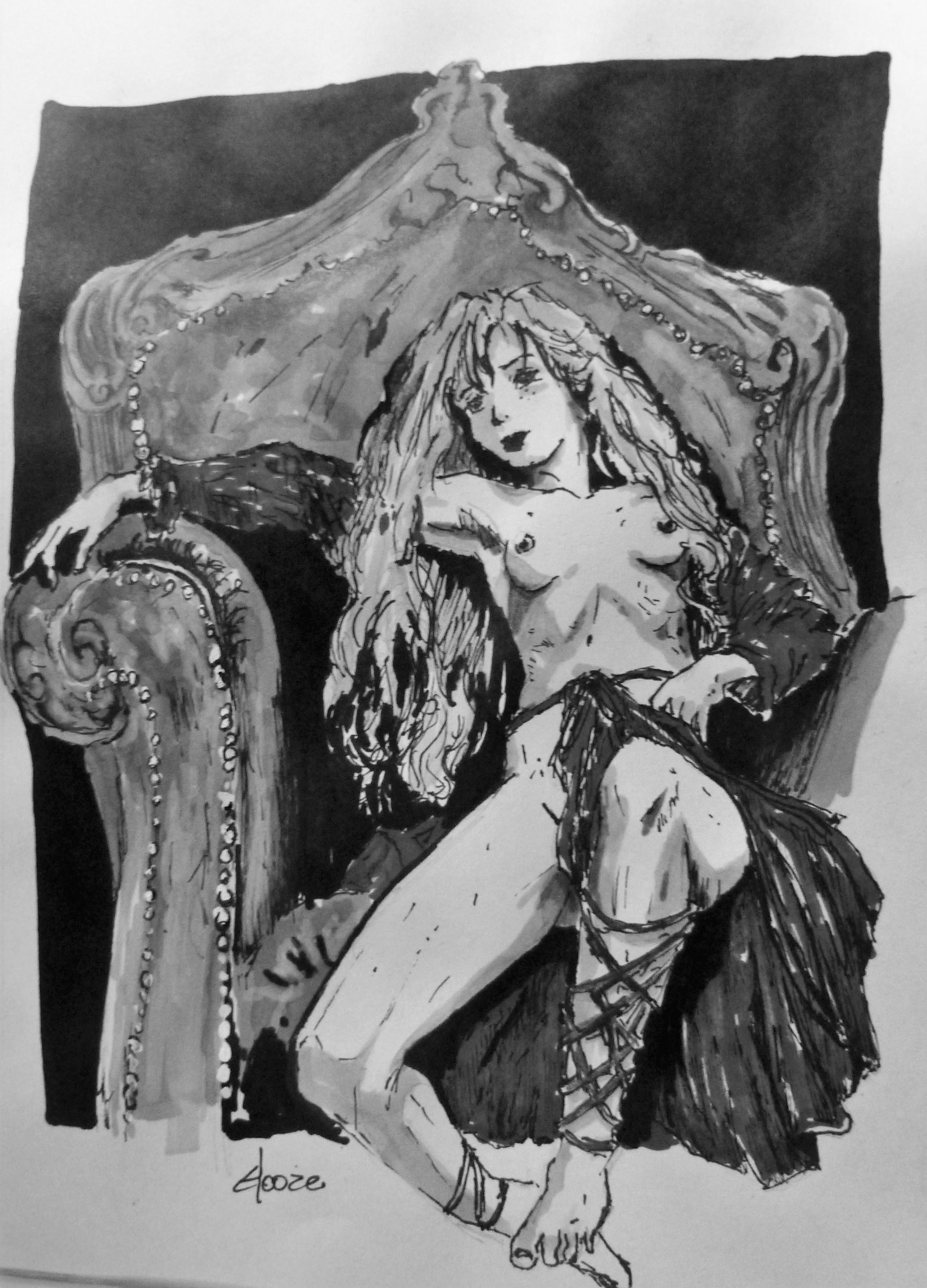Lyra always knew she was different, not because of the divine blood running through her veins, but because of the weight that came with it. It's easy to imagine demigods flying or throwing lightning bolts, but Lyra was the daughter of an ancient deity of Detachment and a mortal who simply wanted to be loved.
Here we see her. It is not a moment of triumph, but of pure exhaustion.
That throne, profusely decorated and ancient, is her curse. They call it the "Throne of Ichor," and her mother, the Goddess, used it to dictate which memories should be erased from the world. Lyra, however, only uses it to rest. She reclined abruptly, letting the worn velvet and carved wood support a body that, though immortal, feels a very human weariness.
The red dress, often slipping onto her lap, is the only color in her life—a color that reminds her of the passion and rage that her mother, the cold deity, forbade her to feel. Look at her hair: long, wild, a glorious mess. She ignores it. She simply sits, her fingers slightly curled on the armrest, without the strength to clench them.
Her eyes, those large, dark eyes, are not looking at an army or a worshipper. They are looking inward. She wonders if she will ever be able to be just Lyra, the girl who wanted to stay on Earth, instead of the demigoddess destined to erase the sorrows of others. Her divine lesson is forgetfulness, but her human heart screams to remember.
On this throne, stripped of her adornments, Lyra is a living contradiction: the daughter of Oblivion who cannot forget what it means to feel alone. The only thing that saves her is the small promise of fire in the red of her skirt, the earthly reminder that she can still feel.
Lyra siempre supo que era diferente, no por la sangre divina que corría por sus venas, sino por el peso que venía con ella. Es fácil imaginar a los semidioses volando o lanzando rayos, pero Lyra era la hija de una antigua deidad del Desapego y un mortal que simplemente quería ser amado.
Aquí la vemos. No es un momento de triunfo, sino de puro agotamiento.
Ese trono, profusamente decorado y antiguo, es su maldición. Lo llaman el "Trono del Ícor", y su madre, la Diosa, lo usaba para dictar qué recuerdos debían ser borrados del mundo. Lyra, sin embargo, solo lo usa para descansar. Se reclinó con brusquedad, dejando que el terciopelo desgastado y la madera tallada sostuvieran un cuerpo que, aunque inmortal, siente un cansancio muy humano.
El vestido rojo, que a menudo se desliza en su regazo, es el único color en su vida, un color que le recuerda la pasión y la rabia que su madre, la deidad fría, le prohibió sentir. Miren su cabello: largo, salvaje, un desastre glorioso. Simplemente se sienta, con los dedos ligeramente cerrados sobre el reposabrazos, sin fuerza para apretar.
Sus ojos, esos ojos grandes y oscuros, no están mirando a un ejército o un adorador. Están mirando hacia adentro. Se pregunta si alguna vez podrá ser solo Lyra, la chica que quería quedarse en la Tierra, en lugar de la semidiosa destinada a borrar las penas de los demás. Su lección divina es el olvido, pero su corazón humano grita por recordar.
En este trono, despojada de sus adornos, Lyra es una contradicción viva: la hija del Olvido que no puede olvidar lo que significa sentirse sola. La única cosa que la salva es la pequeña promesa de fuego en el rojo de su falda, el recuerdo terrenal de que todavía puede sentir.
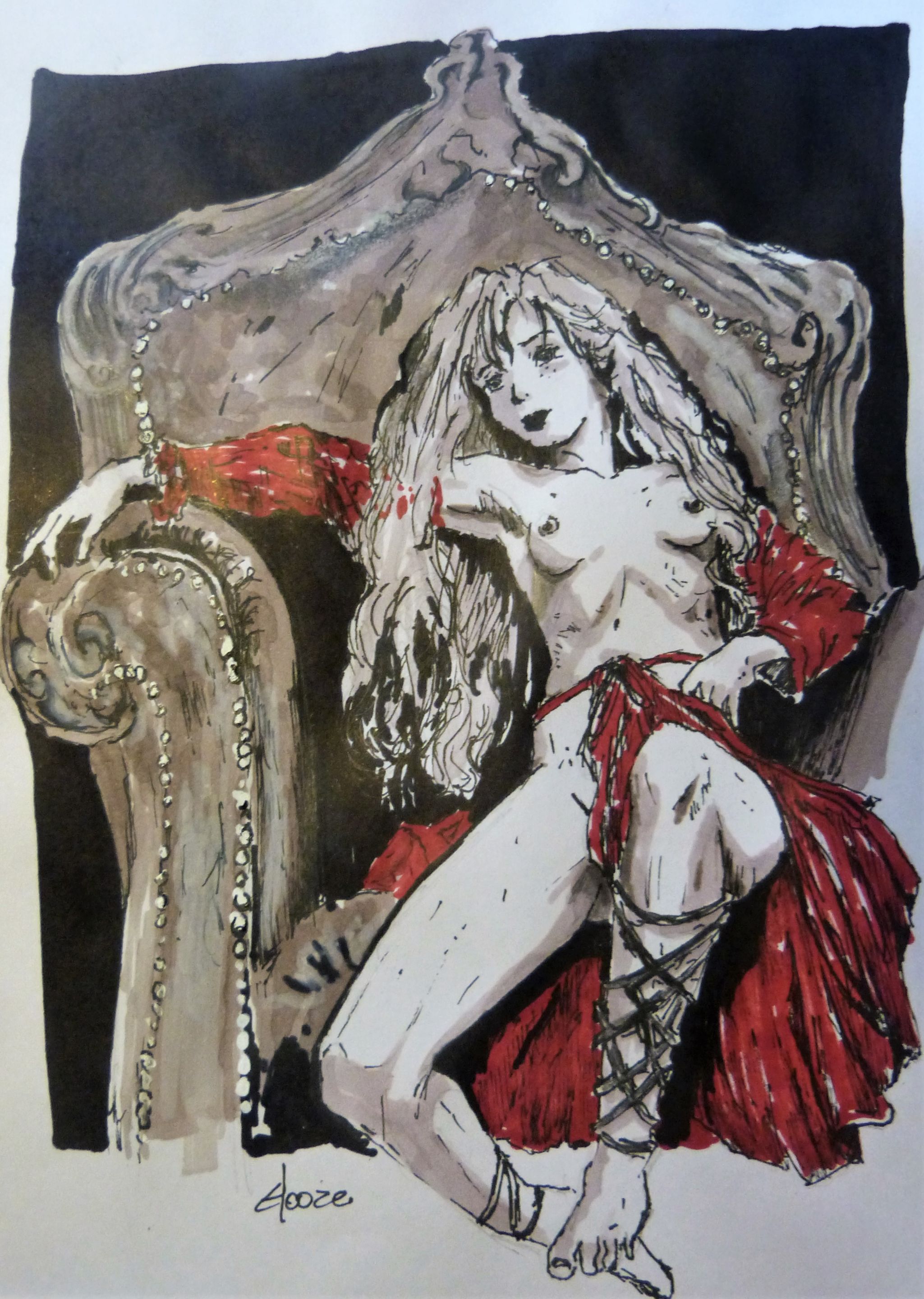
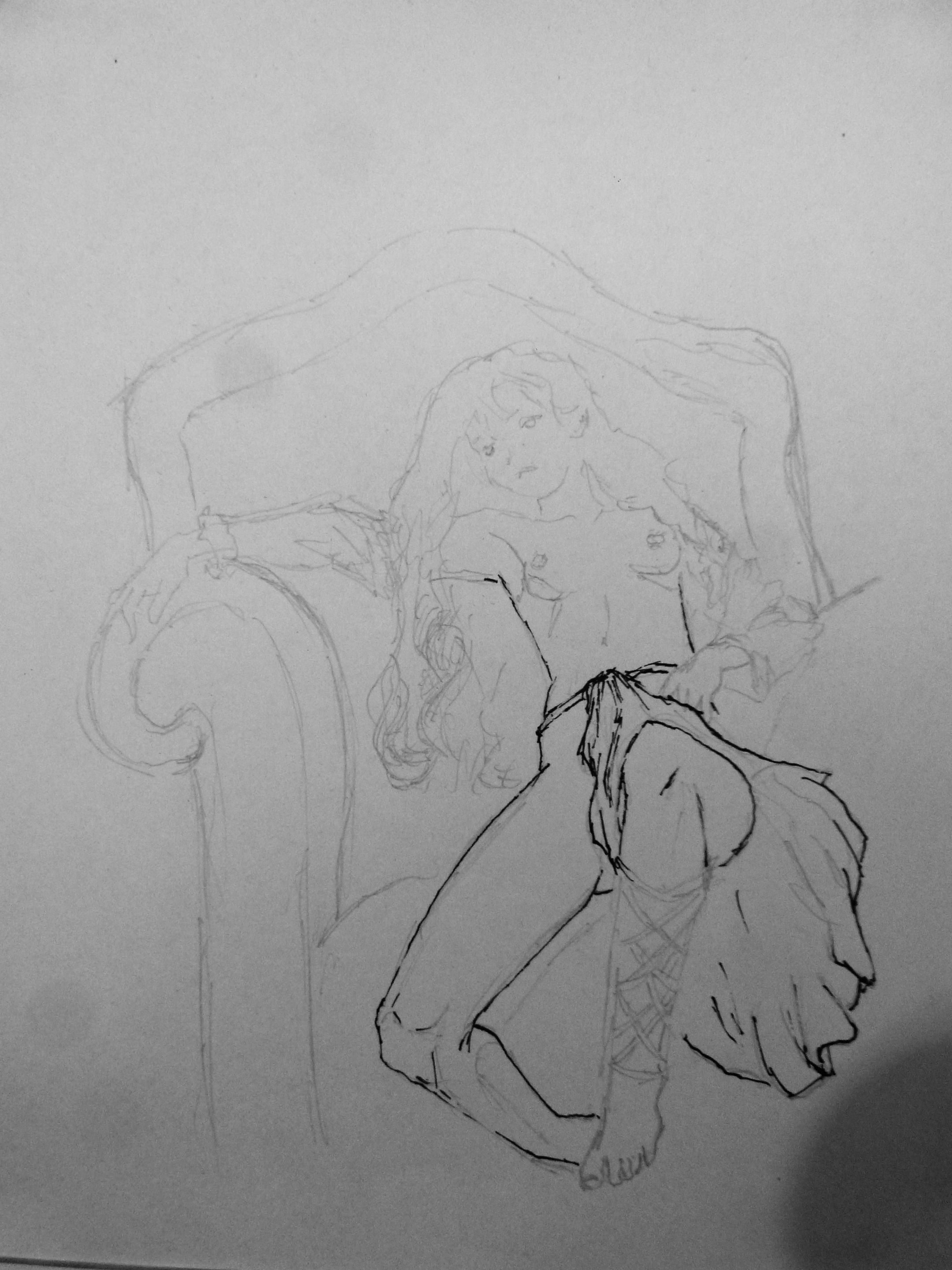
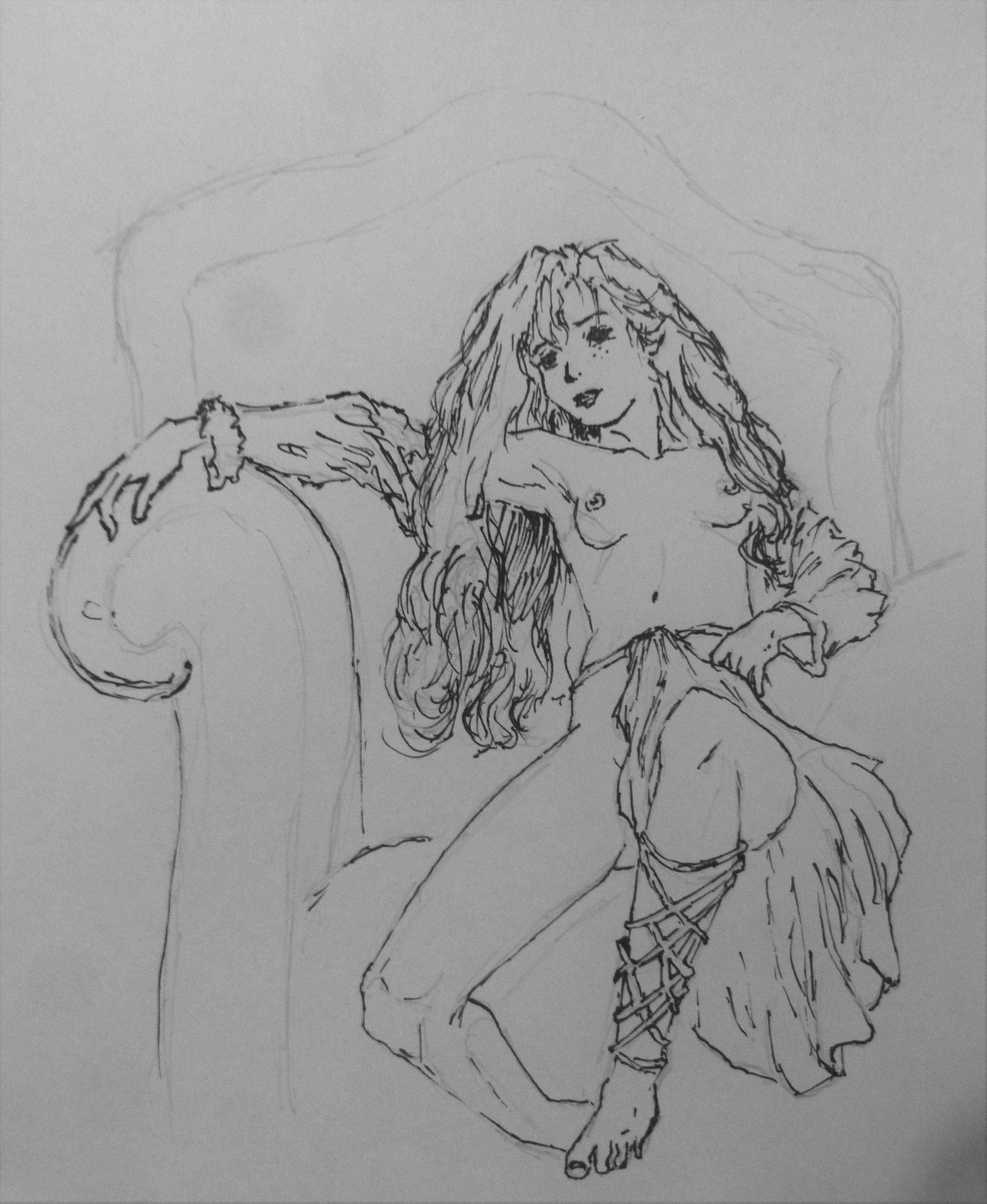
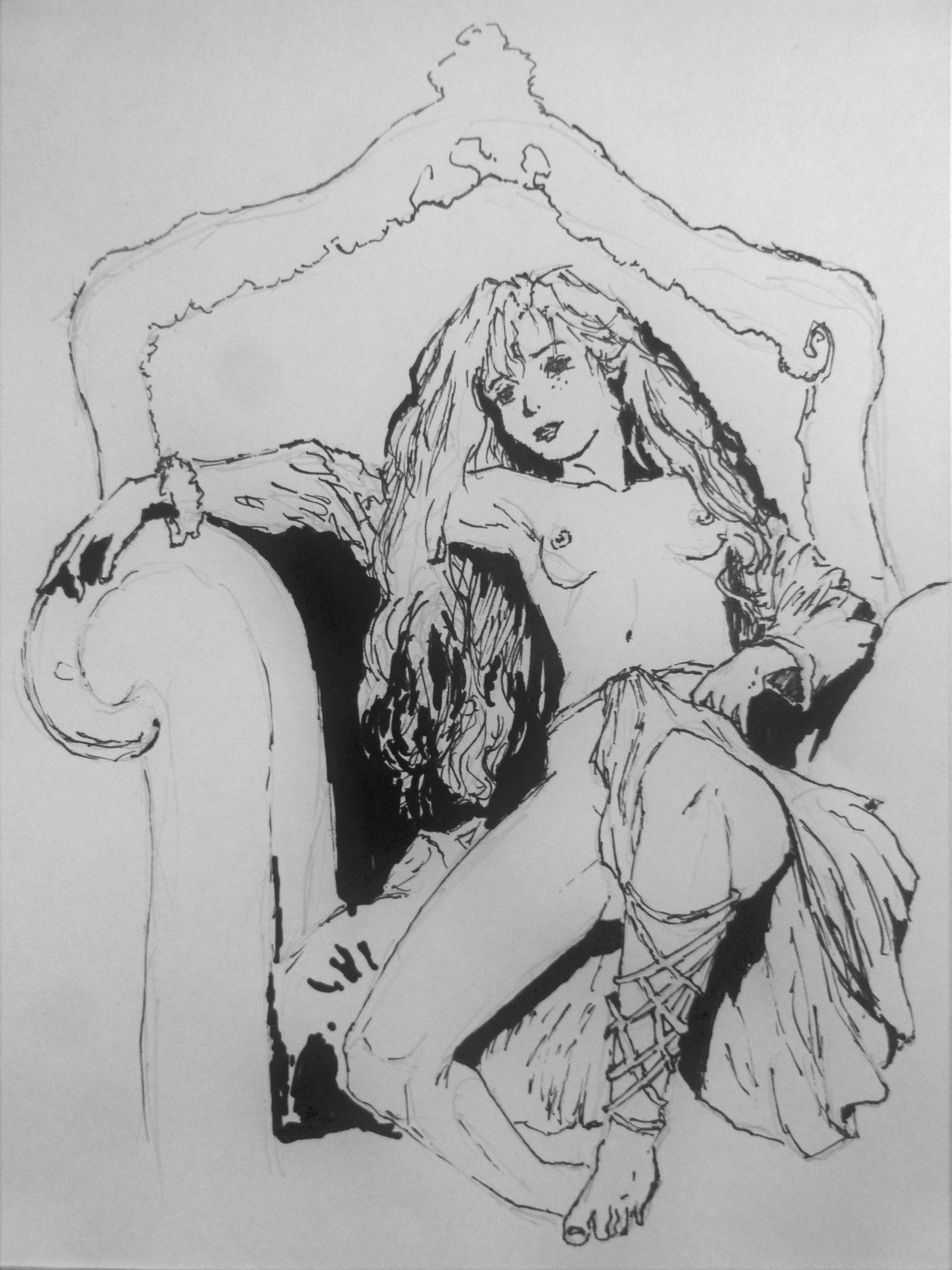
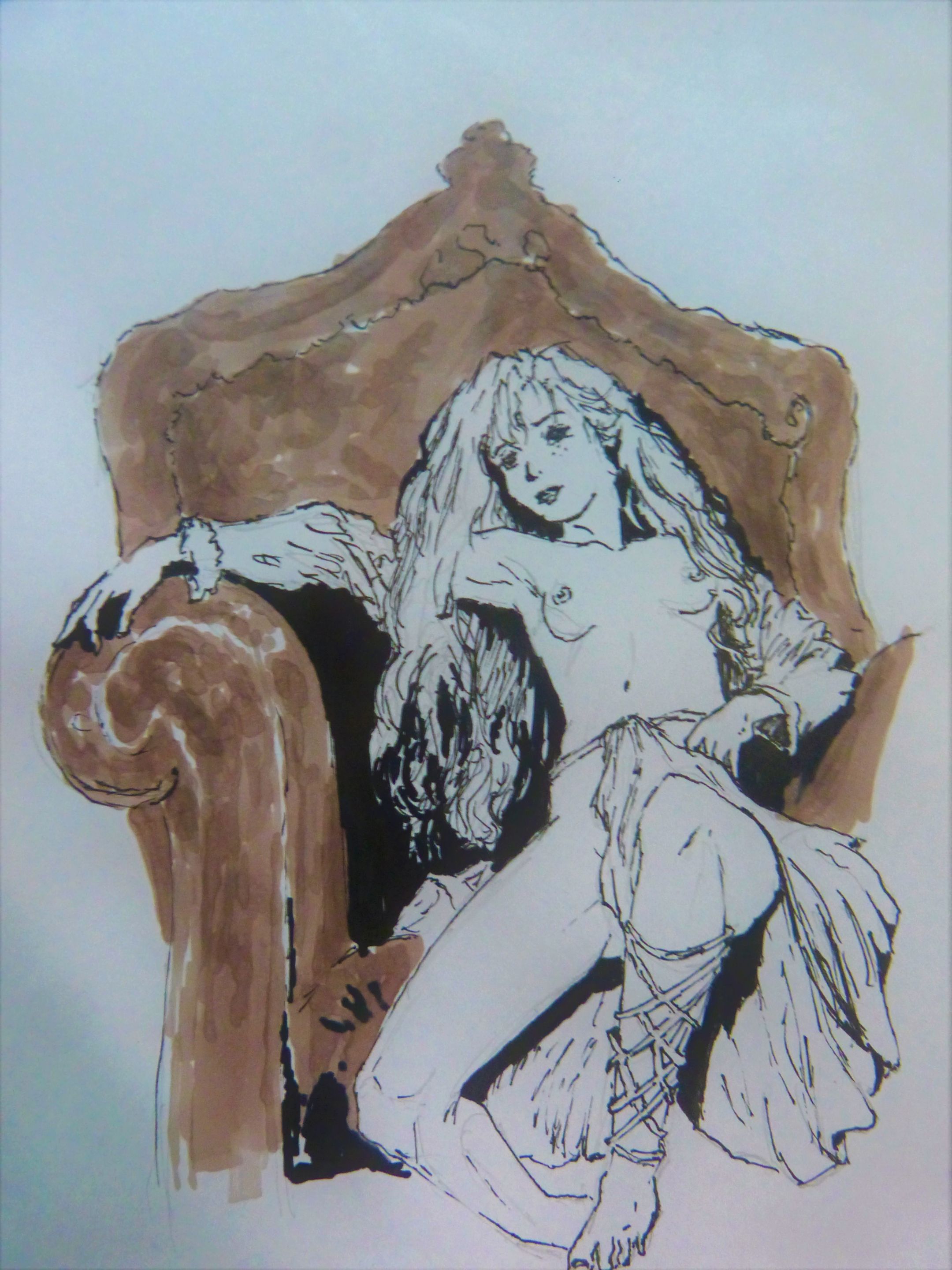
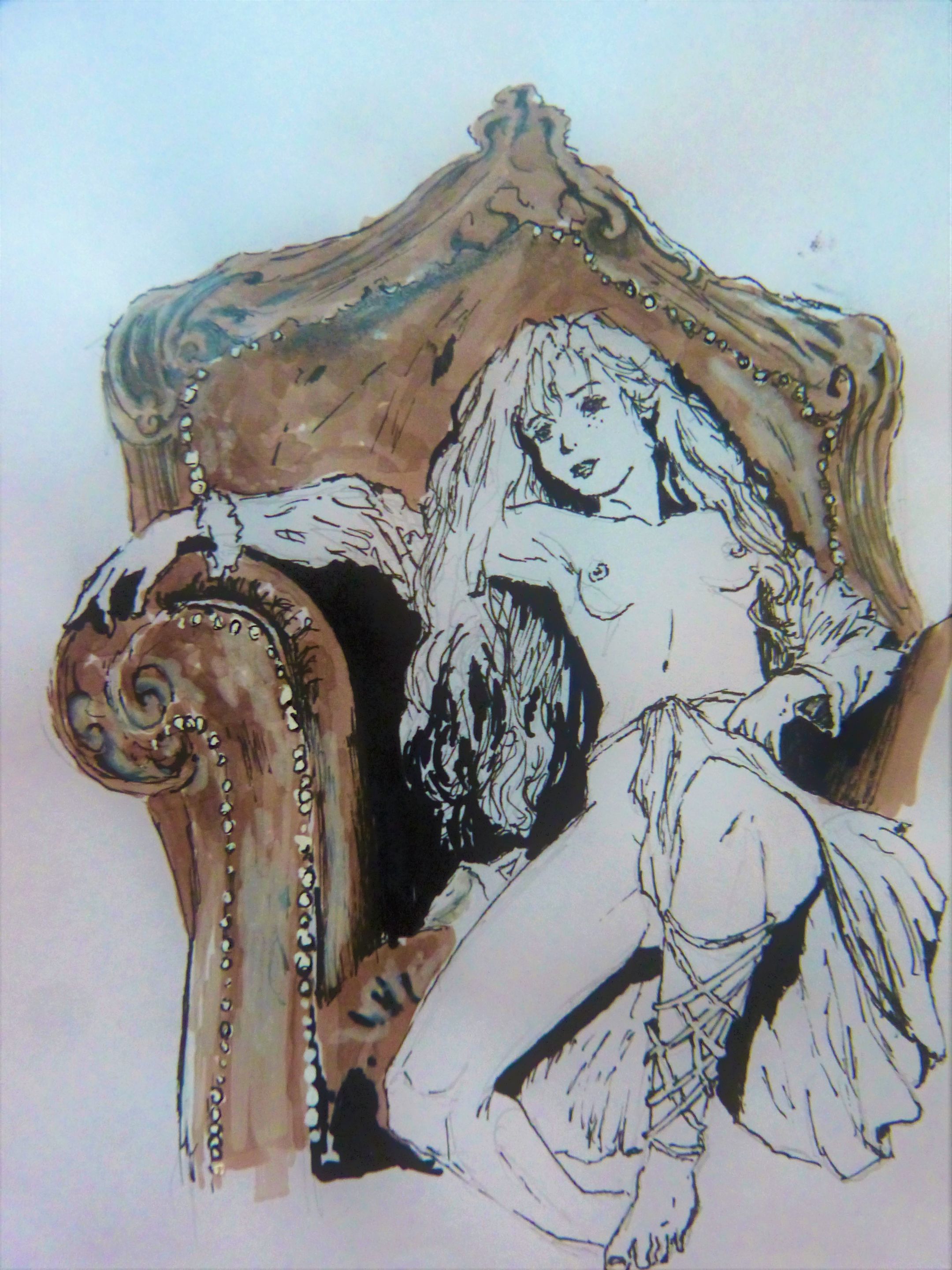

BLACK AND WHITE VERSION
